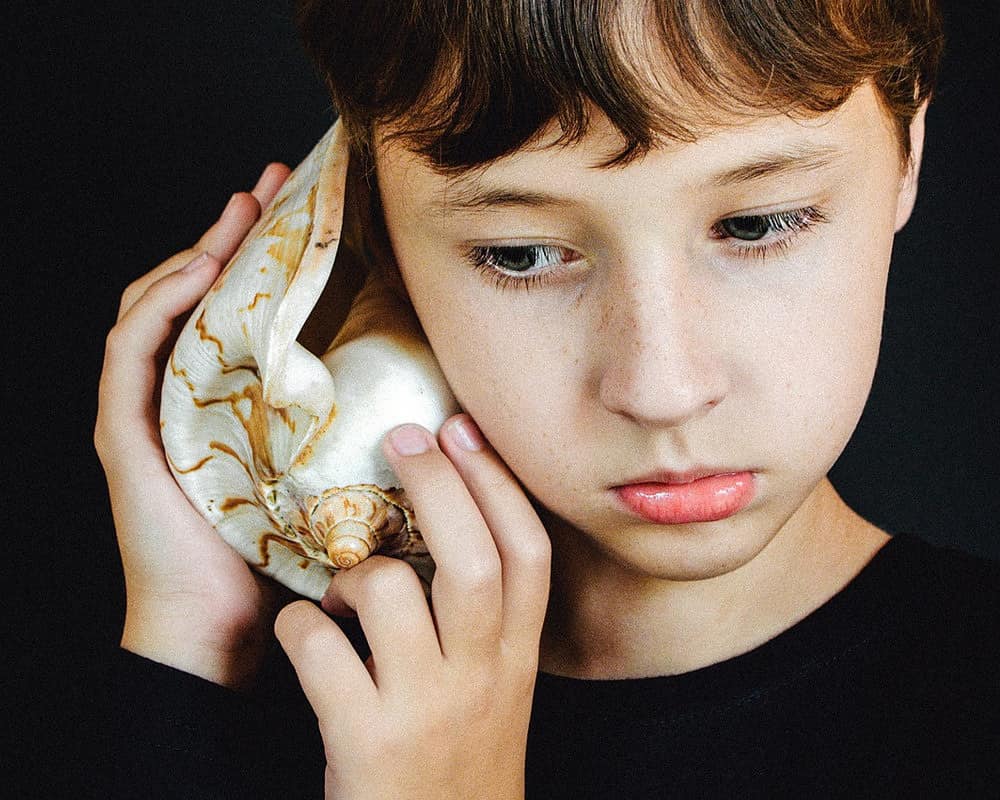
The gradual deterioration of hearing is a process that usually increases with age. However, it is not a phenomenon to be ignored just because it is due to old age: hearing problems must be addressed quickly to prevent them from worsening and to significantly improve the quality of life. Hearing loss is increasingly common even among young people: why does this happen and how can it be avoided?
How does hearing work?
Navigazione
Hearing is one of the basic human senses. It enables us to perceive all kinds of environmental sounds and to talk to each other, and the whole process is extremely complex. Sound waves reach the outer ear, where they travel to the eardrum, which begins to vibrate: it is this vibration that is transmitted to the middle ear and then to the cochlea in the inner ear. Under the influence of the mechanical impulses received by the inner ear, the brain processes sounds.
Human hearing is quite accurate, able to perceive sounds of different frequencies and intensities, select sounds, and hear spatially. Over time, however, impulse transmission may be impaired and hearing begins to fail. Hearing problems usually get progressively worse, but sudden deafness can also occur, usually due to an injury or accident.
Evidence Atinnuris supplement Effectively combats hearing problems and tinnitus.
What are the types of hearing loss?

Hearing loss occurs in varying degrees of severity. The depth of hearing loss is measured with an audiometer, which determines the decibel range in which the patient can perceive sounds. The higher the threshold level, the deeper the degree of hearing loss. Hearing difficulties are also often related to the frequency of sounds: the problem is not so much the volume as the perception of low or high sounds. Medical classifications include mild, moderate, severe and profound hearing loss. When the threshold level is 91 decibels or higher, it is virtually impossible to communicate with a person.
Hearing loss starts around the age of 40, although it is important to remember that it is always an individual problem. Nowadays, more and more young people suffer from hearing loss, which has a lot to do with frequent use of headphones or being in very noisy environments. Untreated hearing loss is becoming increasingly severe, so it is important to react quickly to these changes to prevent total deafness.
Based on the type of hearing impairment, hearing loss can be divided into:
- Conductive,
- Receive,
- mixed (conductive-receptive)
Conductive hearing loss means that the ear loses its natural sensitivity to sounds: the person can hear, but not accurately, and is usually much better at perceiving high tones than low ones, and paradoxically finds it easier to understand whispers near the ear than normal conversation. Sensorineural hearing loss is simply a lowering of the hearing threshold, while mixed hearing loss has the symptoms of both types of hearing loss, and is more common in older people.
Read also: capsules to help hearing problems.
What are the causes of hearing loss?
Hearing loss is not entirely natural. Aging obviously plays a role in making us hear less and less, but there are also many external factors involved, so progressive deafness should not be seen as an inevitable consequence of old age. Hearing problems are greatly influenced by the progress of civilization: as numerous data show, the elderly living in large cities are much more likely to experience hearing loss, which is more profound in these cases. Noise is very damaging to hearing and causes atrophy of inner ear cells. Stress and general weakening of the body are also harmful, so much so that it prevents it from regenerating well. To strengthen the body, try the following. AstaxKrill.

Substitutes, a vitamin-poor diet, and neglected ear infections also contribute to hearing loss. In some cases, hearing loss develops as a result of medication or is a concomitant symptom of another disease-hearing problems are diagnosed in viral infections, acute bacterial infections, infectious diseases, among others. Sometimes the hearing loss regresses once the disease is treated, but sometimes the hearing loss remains permanent, despite elimination of the original cause. Deafness can also accompany diabetes, arteriosclerosis, hypertension, and cardiovascular disease. It is important to take care of one's health and combat the various conditions as quickly as possible. In the case of hypertension and cardiovascular disease, the following steps are helpful. Corsanum supplement.
Sudden deterioration of hearing is mainly due to head trauma, such as temporal bone fracture or concussion. Excessive exertion causing pressure surges or diving to great depths related to sudden pressure changes can severely damage the hearing organ.
How are hearing problems diagnosed?
For some people, hearing problems are manifested not only by deterioration of hearing itself, but also, for example, by earaches, ear exudates, and headaches. Usually, however, it is simply a decrease in the quality of hearing: all sounds are no longer perceived as they once were, it is more difficult to distinguish individual sounds, and only certain frequencies are perceived. For a detailed diagnosis, it is always necessary to consult one's doctor, who will evaluate the patient's condition not only in terms of the functionality of the auditory organ itself, but also the presence of other diseases, previous trauma or infections, lifestyle, and cases of deafness in the family.
Read also: innovative collagen To improve the appearance of skin, hair and nails.
What are the most common symptoms of hearing loss?

According to experts, hearing problems begin as early as the fourth decade of life, regardless of gender, although in older age groups hearing loss is more common in men than in women. After the age of 65, one in two people already suffer from hearing loss, but not all older people undertake proper treatment or at least combat the unpleasant symptoms. Often this is due precisely to the belief that hearing gets worse with old age and nothing can be done about it, and also to the fact that these changes occur slowly and gradually, so the elderly can get used to them.
The first symptoms of hearing loss are usually not remembered, and it is often family members and people around you who do not notice the onset of hearing loss: for example, you may be listening to TV very loudly or mispronouncing words. Hearing loss may affect only one ear or be bilateral, and sometimes annoying tinnitus is added to the hearing loss. Typical symptoms of hearing loss are.
- listening to the radio or television at a higher volume than before
- Not understanding the interlocutor and often asking him to repeat what he said
- twisting of the words heard
- unclear speech, more mumbling or stuttering
- main problems during a phone call
- More nervous contact with the environment
- Withdrawal from social and community life so as not to hear from others
Should hearing problems be treated?
Hearing defects are not incurable. In very advanced cases it may be difficult, if not impossible, to restore hearing to its original level, but even a partial improvement in hearing contributes greatly to an elderly person's quality of life. Hearing is of considerable importance for physical fitness and overall health, and doctors point out that hearing loss contributes significantly to the development of depression-with profound hearing loss, this risk increases up to five times.
By implementing treatment quickly, it is possible to slow down or even completely stop the process of degeneration of the cells of the auditory system. It is also possible to regenerate hearing and restore it, most often when the hearing loss is related to ear infections or certain comorbidities that require effective treatment. Hearing loss not only makes it difficult to communicate with others, but also creates new risks for the elderly person, such as on the street, where good hearing allows them to detect and react in time to various dangerous situations.
People with hearing loss often feel excluded because they cannot communicate effectively with their surroundings, run errands or go shopping, and forced isolation only accelerates the changes of dementia and leads to all sorts of mental problems.
How can hearing loss be treated?
The first step should be a detailed history, during which the physician can indicate the causes of hearing problems and their severity. After the initial diagnosis, specialized hearing tests are performed to confirm the diagnosis or to rule out the initially hypothesized causes. Once the type and severity of the hearing loss is determined, the physician chooses the optimal treatment method so that it provides maximum benefit to the patient and causes no side effects.
A popular treatment for hearing loss is hearing aids. This is a small device that is worn behind the ear or attached to glasses; some hearing aids are designed directly into the ear or are worn in a pocket, with only comfortable headphones inserted into the ear. Modern hearing aids are very comfortable to wear and have many useful features to make life even more comfortable for the person with hearing impairment.
Another option is surgery. An implant to improve hearing can be placed under the skin, while surgical treatment can also help remove defects in the eardrum or ossicles. Surgeries are performed under anesthesia, so the patient must undergo habilitation before surgery; if the condition is severe, surgery is not always possible, so a specially selected hearing aid or drug treatment remains. For less severe hearing loss, medication and dietary supplements may be helpful.
Tinnitus
Tinnitus is an equally common and often underestimated condition among the elderly. It is estimated that about 18% of adults suffer from tinnitus. Tinnitus is defined as a sound that can be heard in the head but that does not come from any external source. It can be not only a buzzing, but also a whistling, rumbling in the head, rustling, knocking, or squeaking. Tinnitus may occur only in certain situations, such as when falling asleep or during significant physical exertion. They are not always accompanied by hearing loss, but usually the two conditions are combined. Tinnitus, like hearing loss, most often affects older people and should therefore not be underestimated.
Tinnitus can occur for a variety of reasons: injury, infection, hypertension, stress, exhaustion, as a side effect of taking certain medications. Tinnitus can be combated with supplements that provide missing micronutrients or help normalize blood pressure. Take care of cholesterol levels as well: the following will help here Lipid Control Plus.
How do you treat hearing?

It is important to take care of your hearing from a young age, when there is nothing wrong with it. The most important thing is to avoid noise: it is necessary to wear ear protectors at work and limit loud music and headphones in leisure time. One should also not ignore ear infections, which can cause serious changes in the anatomy of the auditory organ, and take good hygiene into account: ears should not be cleaned with ear sticks and water should be avoided.
It is best not to get rid of earwax on your own; it is safer to have it treated by an ear specialist, although preparations available in pharmacies can be effective for smaller earwax. Since hearing problems can be caused by infection and contagion, it is a good idea to vaccinate children against meningitis and rubella, and treatment of colds or other such viral or bacterial diseases should also include the auditory system.
Leave a Reply